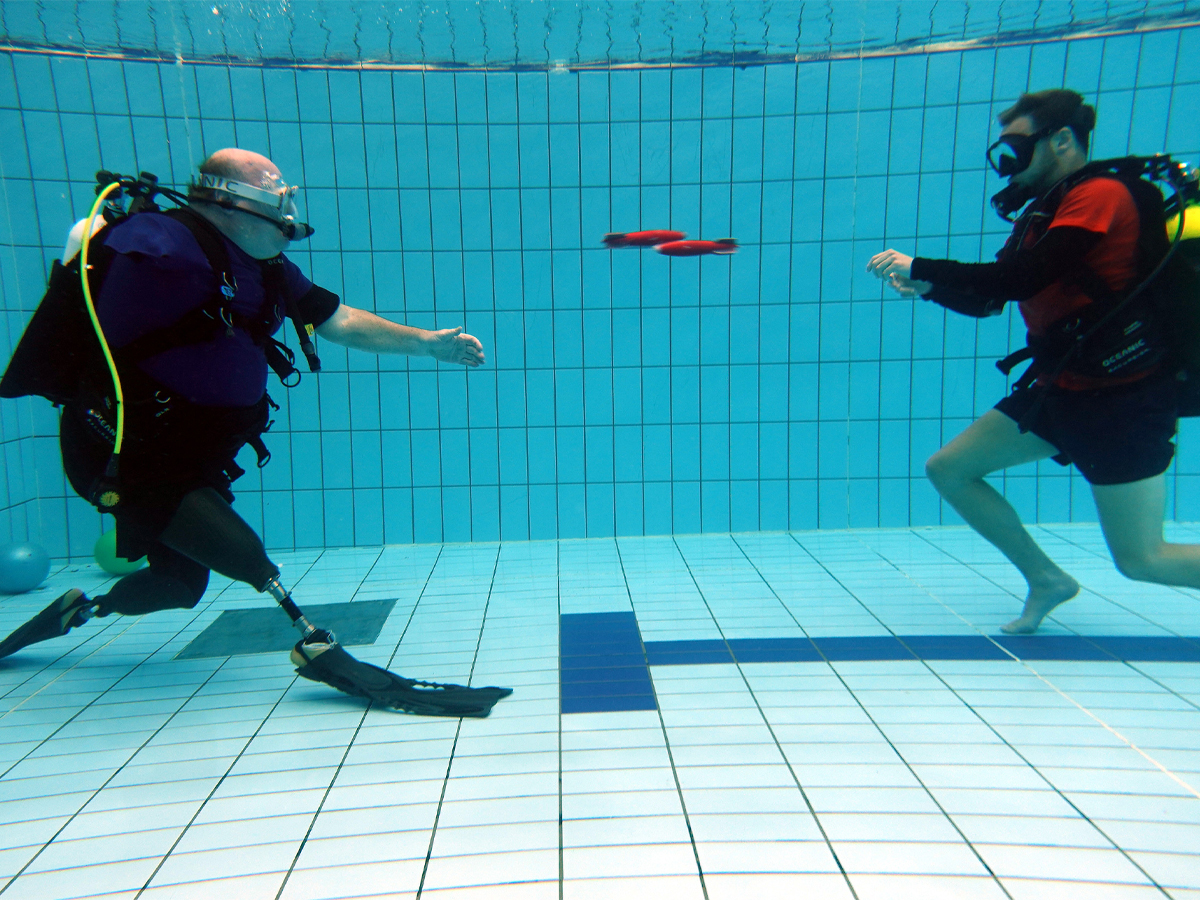Immersion therapy, where those with disability or injury can improve movement through immersion in water using scuba gear is expanding nationally, following a deal between Belgravia Leisure and Determined2.
Previously, only available in Adelaide, this world-first program is said to benefit people living with autism, anxiety, depression, multiple sclerosis, spinal cord injuries, amputations, soft tissue injuries and a range of other conditions.
Belgravia Leisure, that operates 160 aquatic venues across Australia and New Zealand, will see Determined2’s immersion therapy expand first into Melbourne’s Watermarc facility, with plans to roll out to least 10 other aquatic facilities nationally and New Zealand over the next five years.
With guidance from specially trained accredited exercise physiologists, immersion therapy offers the freedom of movement within a weightless underwater environment using scuba equipment.
Underwater, participants with a wide variety of disabilities and injuries who find it difficult to walk on land can walk, swim and even dance. Participants, aged from eight upwards report improved movement, reduced pain and enhanced mental and social health after their sessions.
Determined2’s services in Adelaide has been funded by the NDIS, for people with workplace injuries motor vehicle injuries, returned service personnel and people supported by an aged care package, with the intention that a similar setup will be available in other states and territories.
Determined2 founder Peter Wilson said with immersion therapy being delivered within Belgravia facilities by qualified allied health professionals, they will now be able to include everyone in evidenced based physical exercise and activities, especially to those, who for a long time, have been excluded.
“Determined2, in partnership with the University of South Australia and leading medical experts have spent the past seven years researching the service to better understand how immersion therapy helps people,” Wilson said.
Belgravia Foundation CEO Dr Jeff Walkley said immersion therapy enables things to happen that many participants thought impossible.
“Prior to this agreement, people who have experienced catastrophic impact of severe disability, injury or illness haven’t been able to benefit from local community assets via programs curated based on evidence-based practice such as immersion therapy,” he said. “We are at the helm of a pivotal turning point where leisure centres are finally integrating into the Australian health service system.”
Training of exercise physiologists begins in Adelaide in August, with the first participants expected to benefit from immersion therapy at Melbourne’s Watermarc venue in October.

